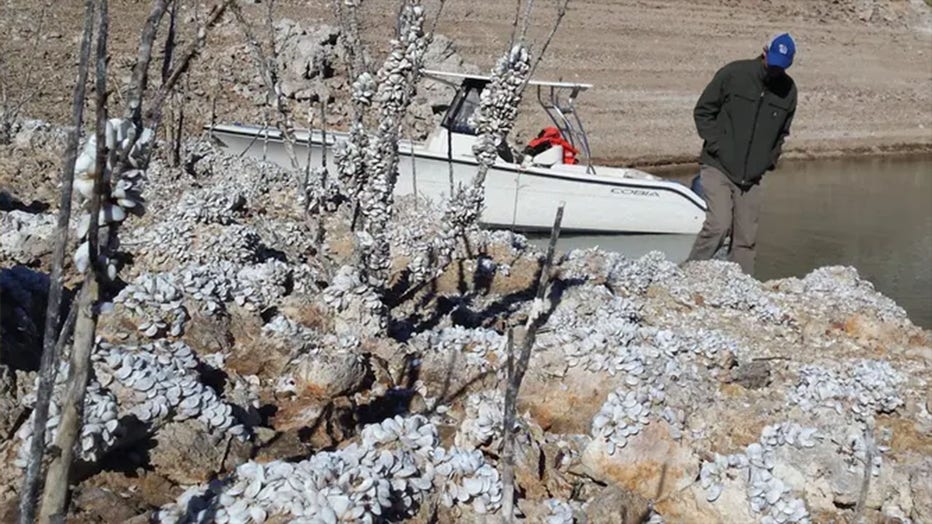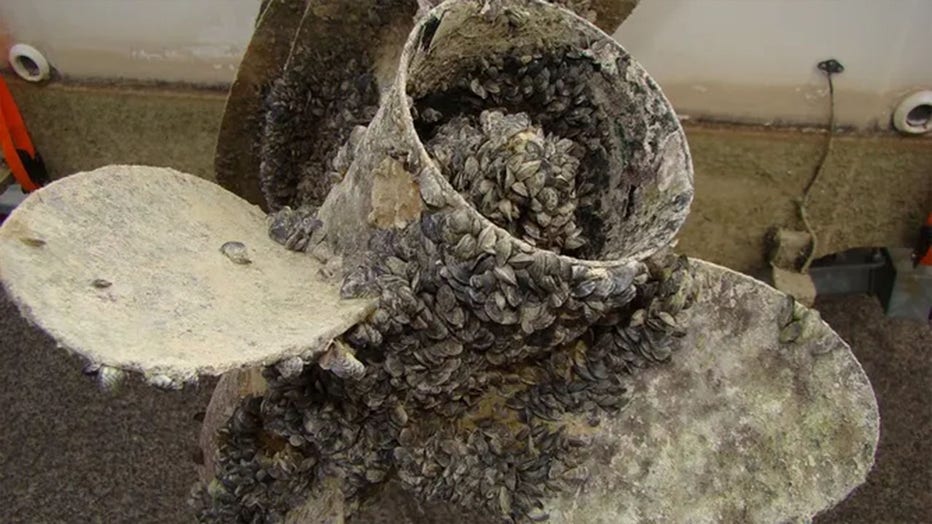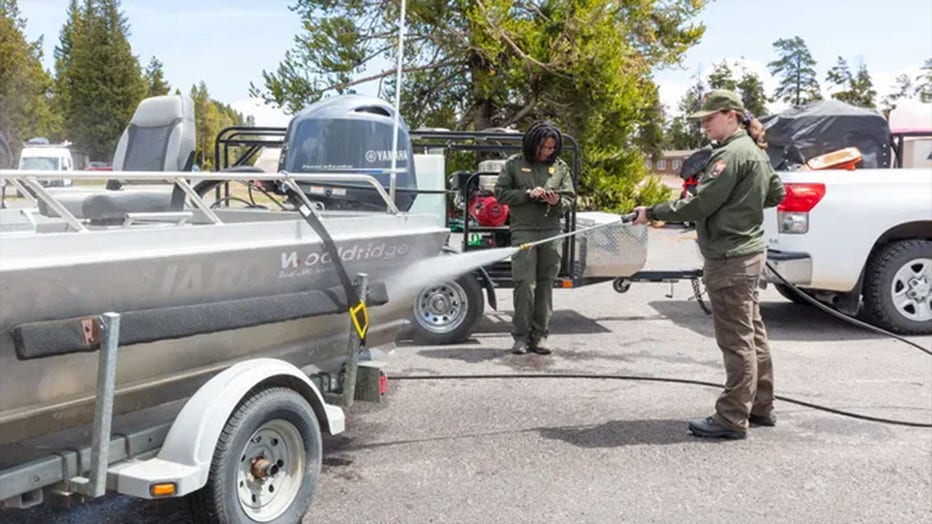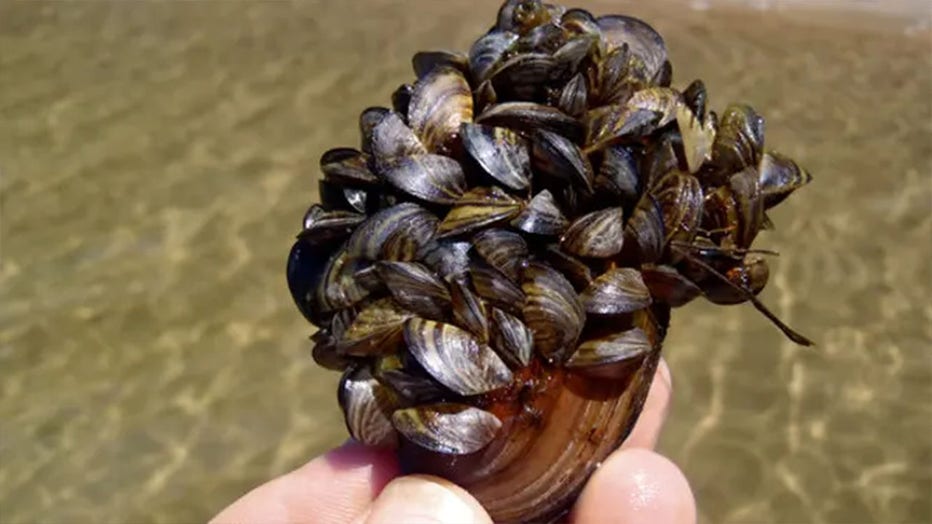Invasive mussels pose threat to Yellowstone National Park
Video: Bison herd escorts calves across road in Yellowstone
A bison herd filled with calves crossed US-212 in Yellowstone National Park, Wyoming, in late May 2023. Toby Tollefsen recorded this video while on a trip to the park.
YELLOWSTONE NATIONAL PARK, Wyo. - Mussels that have caused "irreversible" damage to other parts of the U.S. are now at Yellowstone National Park’s doorstep, causing park officials to consider restrictions on watercraft at the park.
Native to Eastern Europe, zebra and quagga mussels are highly invasive and pose a variety of threats, according to the National Park Service. Some of the threats include obstructing the flow of drinking water by clogging up pipes and destroying boat engines.
The mussels also quickly reproduce in large numbers, which makes keeping them in check a considerable challenge.
"Mussels have caused irreversible ecological damage and extensive impacts to infrastructure and recreation in waterways throughout the Midwestern and Eastern United States, as well as in the lower Colorado River Basin," the NPS said.
THEY'RE BACK: INVASIVE JUMPING EARTHWORMS BELIEVED TO BE SPOTTED IN THIS MIDWEST STATE
One of the ways the mussels spread is by attaching themselves onto watercraft, which can carry the mussels from one body of water to another.

Mussels that have colonized an area of land. (Credit: California State Parks Division of Boating and Waterways / FOX Weather)
Park officials want to prevent this from occurring in Yellowstone National Park, which is located at the headwaters of the Yellowstone, Snake and Missouri drainages. Because of its location, the NPS said the introduction of mussels at the park could put the currently mussel-free waters downstream in Wyoming, Montana, and Idaho at risk.

The prop on this boat motor at Lake Mead is covered with quagga mussels. Mussels can clog the water intakes on a prop. That can cause the motor to overheat and can seize the motor. The result can be thousands of dollars in repairs. (Credit: Californi
Officials have proposed a few measures:
- A 30-day dry time for motorized boats and sailboats before being placed into park waters.
- Denying launch of watercraft that have previously been fouled by mussels.
- Continuing protections that prohibit watercraft with live or dead mussels, along with watercraft with sealed internal ballast tanks.

Aquatic invasive species technicians decontaminating a motorized boat and trailer. (Credit: Jacob W. Frank / National Park Service)
Additionally, the NPS is seeking feedback from the public on how to halt the spread of mussels in park waters. Comments can now be submitted until April 5 online or by mail at:
Yellowstone Center for Resources Attn: AIS Proposed Changes
PO Box 168
Yellowstone National Park, WY 82190

Mussels. (Credit: California State Parks Division of Boating and Waterways)
After April 5, park officials will consider all comments received and then come to a final decision in spring 2024.
Find more updates on this story at FOXWeather.com.

